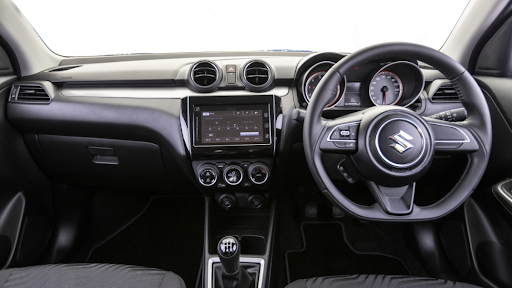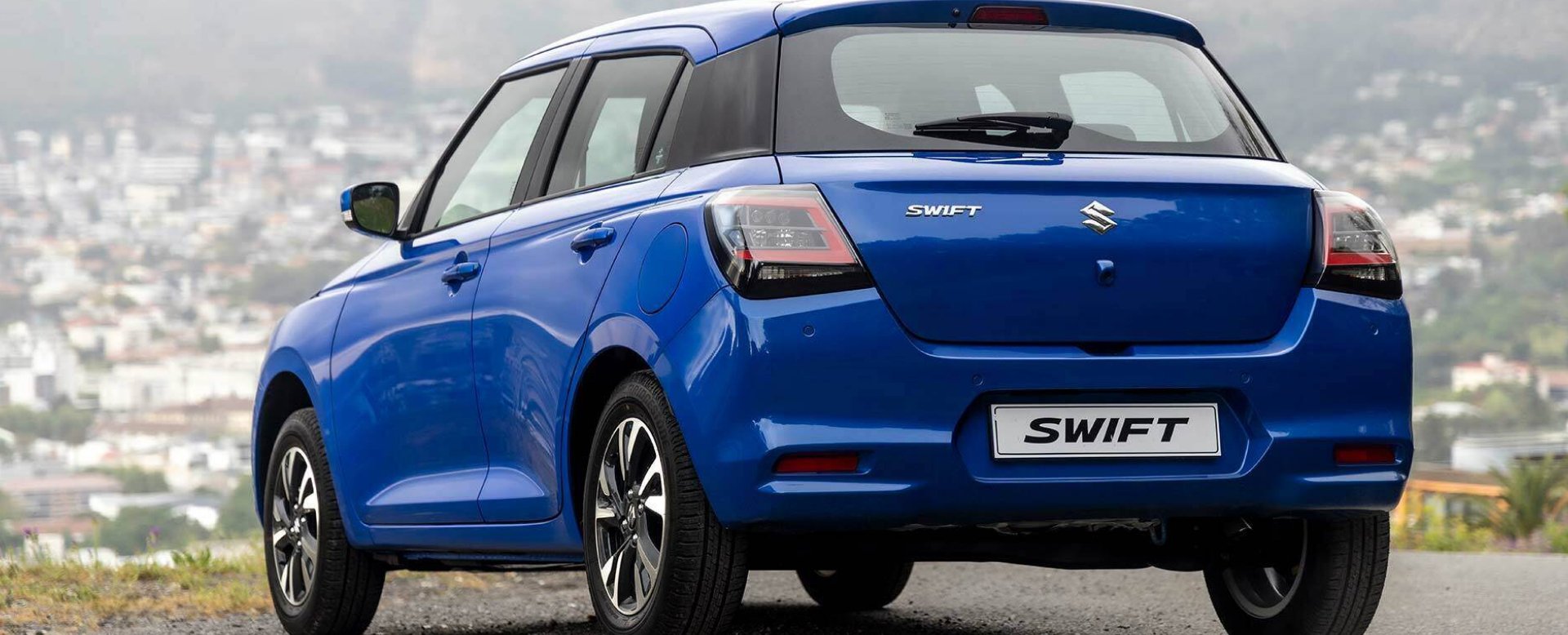If you want to keep your vehicle in top condition, regular checks will go a long way in ensuring your Suzuki remains reliable and performs at its best in all conditions. To make this easier, we’ve put together a few tips to keep your wheels in great shape during the winter months.
In SA we tend to be more concerned with our vehicles standing in the sun for too long or overheating and we sometimes forget that our cars need some winter TLC as well. These valuable assets also need some care against the elements at this time of year.
To get your vehicle in winter-ready shape, we’ve put together some car maintenance tips to keep you safe and moving on the roads, so that you’re not left stranded during the colder months.
1. Batteries
Car batteries sometimes act up during colder months as they use more energy to start up a cold engine. The last thing you want on a frosty winter’s day is to be stuck with a flat battery!
Here are a few winter checks to ensure your car battery is in good working condition:
- Check the water (electrolyte) level to make sure it’s not too low (it must cover the fluid plates). If necessary, top it up with distilled water. Avoid overfilling and clean any spillage. Some Suzuki products have closed batteries, but your local dealer will be delighted to help you check the levels.
- Keep your car battery clean by wiping the terminals with warm (not hot) soapy water and remove any acid or dirt build-up, which could cause the battery to self-discharge quicker.
- Secure your car battery properly to make sure it doesn’t shift out of place under the bonnet.
- Charge your car battery regularly. If you typically only drive short distances or use your car infrequently, you may need to take a longer (one hour) drive every week to ensure the battery stays charged and maintains its lifespan. A nice drive can also be a pleasant break from your routine! If you can’t take a long drive, make sure you start your car and leave it running for around 15 to 20 minutes every few days. Do tell your dealer when you take your car for a service if you only drive short distances and they will charge your battery for you.
- Switch off before you switch on. Make sure that you switch all other devices in your vehicle off when parking for the night. This includes the air-conditioner, radio, lights, windscreen wipers, and demisters. In cold weather, a fully-charged car battery provides less than half the power than in warm weather and you don’t need to lose unnecessary power.
- Alternator belts. Check the belts for fraying or cracking. A loose alternator belt is a common cause of battery failure.
- Service your car. Keeping your car’s service history up to date will help to extend the battery’s life.
- Call the AA. If your car battery is dying or dead, the AA will come to you, 24 hours a day, seven days a week, 365 days a year. The callout is covered by your AA Member benefits.
TIP: If you struggle to start your vehicle, do not crank the engine continuously as this may damage the starter, car battery, and other electronic components. If, after a few tries, you have no luck it is best to either call the experts or jump-start the vehicle (just make sure you know how!)
TIP: The average car battery lasts between 2 and 5 years when kept in good condition. Keep a lookout for your battery’s age, and replace when it nears its older years. Battery life is also determined by where you live - for example, a car battery in Phalaborwa may not last as long as one in Bloemfontein due to temperature, humidity and evaporation.
2. Tyres
- Always ensure your tyres are in good condition, and not worn down. Worn tyres are extremely dangerous in all conditions, but this danger can be multiplied in wet, snowy, and icy weather. Check that your tyres are inflated to the correct pressure according to the manufacturer’s guidelines, as this will ensure optimal road holding and tyre life.
- It is always a good idea to maintain your vehicle’s tyres, not only because the law requires it and you may face stiff penalties if you are stopped and your tyres are found to be unroadworthy, but also to keep you and your passengers safe on the road. The law says your tyres must have at least two-millimetres tread. Some tyres have tread wear indicators in the tread pattern to show when the tread depth is less than 1.6 millimetres. In these cases, if the tread is level with the indicators, the tyre must be replaced as it is considered unroadworthy.
- Your insurance policy may also require that your car is roadworthy before you drive it, and worn tyres may void that condition.
3. Remember your lights
- In winter, many motorists on the work commute drive in darkness. You need to ensure that your car’s headlights are working properly and that you always switch the headlights off when you reach your destination. If you can, park your vehicle facing a wall - the reflection of the lights will act as a reminder to switch them off.
4. Windscreens and wipers
- If your car is parked outside overnight, you may have a layer of frost on the windscreen when it gets really cold. Don’t use warm water to clean this layer, as your windscreen may crack. Instead, use a scraper (an old credit card will do the trick) to remove the ice. Using the air-conditioner to demist the interior of the car will also help. Make sure it is clear before you drive.
- Avoid using the windscreen sprayers when driving in extremely cold conditions as the water from the reservoir will freeze onto the windscreen, and the wipers will not be able to clear the ice.
- It is important to check the condition of your wiper blades and replace them if needed. Avoid cleaning mud and soil from the windscreen with the wipers as these can scratch the glass.
- TIP: If possible, park your car undercover at night to ensure your windscreen remains clear the next morning.
By keeping your battery, tyres, windscreen and wipers in working condition, you and your car should have no worries travelling together this winter!
If you keep up-to-date with services, maintenance, and care, you will lower costs, lengthen the lifespan of your vehicle, and increase your resale value.
Want to get the latest on road tripping, car care, auto advice and more? Sign up for all the info you didn’t know you needed!


![How to drive a heavily loaded car [infographic]](https://blog.suzukiauto.co.za/hubfs/How%20to%20drive%20heavily%20loaded%20car/Suzuki_how_to_drive_heavily_loaded_car.jpg)
